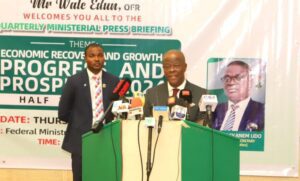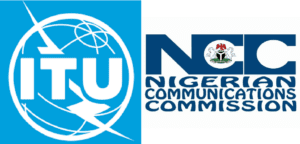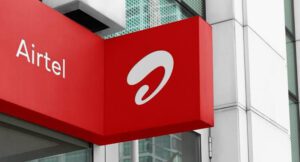
SERAP, NGE want court to stop Buhari, others from shutting down 53 broadcast stations
Socio-Economic Rights and Accountability Project (SERAP) and Nigerian Guild of Editors (NGE) have filed a lawsuit against President Muhammadu Buhari and the National Broadcasting Commission (NBC) over “the arbitrary use of the NBC Act and broadcasting code to threaten, revoke and shut down 53 broadcast stations in the country for allegedly failing to renew their licenses.”
Joined in the suit as Defendant is Mr Lai Mohammed, Minister of Information and Culture.
The NBC had last week revoked the licenses of the 53 broadcast stations and threatened to shut down their operations within 24 hours over alleged N2.6 billion debt. The NBC has now asked the stations “to pay all outstanding license fees on or before August 23, 2022 or shut down by 12am on August 24.”
In the suit number FHC/L/CS/1582/2022 filed today at the Federal High Court, Lagos, SERAP and NGE are asking the court to determine “whether section 10(a) of the Third Schedule to the National Broadcasting Act used by NBC to threaten revoke the licenses of 53 broadcast stations and shut them down is not in inconsistent and incompatible with freedom of expression and access to information.”
SERAP and NGE are asking the court for “a declaration that section 10(a) of the Third Schedule to the National Broadcasting Act used by NBC to threaten to revoke the licenses of 53 broadcast stations and to shut down the broadcast stations is unconstitutional and unlawful, as it violates freedom of expression.”
SERAP and NGE are seeking “an order of interim injunction restraining them, their agents or privies from revoking the licenses of 53 broadcast stations in the country and shutting their down operations, pending the hearing and determination of the motion on notice filed contemporaneously in this suit.”
In the suit, SERAP and NGE are arguing that, “The provisions of the Nigerian Constitution and human rights treaties on freedom of expression indicate that this right can be exercised through any medium.”
SERAP and NGE are also arguing that, “Effectively, these provisions recognize that every individual has the right to an equal opportunity to receive, seek and impart information through any communication medium without discrimination.”
According to SERAP and NGE, The use of NBC Act and Code in this case would inadmissibly open the door to arbitrariness and would fundamentally restrict the freedom of expression that is an integral part of the public order protected the Nigerian Constitution and human rights treaties to which Nigeria is a state party.
The suit filed on behalf of SERAP and NGE by their lawyer Kolawole Oluwadare, read in part, ”The media plays an essential role as a vehicle or instrument for the exercise of freedom of expression and information – in its individual and collective aspects – in a democratic society.
“Indeed, the media has the task of distributing all varieties of information and opinion on matters of general interest.”
“The public has a right to receive and assess this information and opinion independently. Therefore, the existence of a free, independent, vigorous, pluralistic, and diverse media is essential for the proper functioning of a democratic society.”
“According to the Declaration of Principles on Freedom of Expression in Africa adopted by the African Commission on Human and Peoples’ Rights, licensing processes shall seek to promote diversity in broadcasting. Any registration system for the media shall not impose substantive restrictions on the right to freedom of expression.
“Revoking the licenses of 53 broadcast stations and shutting down their operations because they have not renewed their licenses would both seriously undermine the rights of millions of Nigerians to express their thoughts, and their right to seek, receive, and impart information and ideas of all kinds, in any medium they choose.
“Freedom of expression includes the public’s right to receive, and the right of those who express themselves through a medium of communication, to impart the greatest possible diversity of information and ideas.
“The right to freedom of expression is based on the right to establish or use a media outlet to exercise freedom of expression and on society’s right to have access to a free, independent, and pluralistic media that allows for the most and most diverse information.
“The media, including the affected 53 broadcast stations, serve to distribute Nigerians’ thoughts and information while at the same time allowing them access to the ideas, information, opinions, and cultural expressions of other individuals.”
“The exercise of the right to freedom of expression through the media is a guarantee that is fundamental for advancing the collective deliberative process on public and democratic issues.
”Therefore, the strengthening of the guarantee of freedom of expression is a precondition for the exercise of other human rights, as well as a precondition to the right to participation to be informed and reasoned.
“The media including the affected 53 broadcast stations play an essential role, as they allow millions of Nigerians to access both the relevant information and a variety of perspectives that are necessary for reaching reasonable and informed conclusions on matters of public interest.
“Under the Nigerian Constitution and human rights treaties to which Nigeria is a state party, freedom and diversity must be guiding principles in the regulation and licensing of broadcasting. The threat to shut down 53 broadcast stations is entirely inconsistent and incompatible with these principles.
“It is the mass media such as the 53 broadcast stations that make the exercise of freedom of expression a reality. This means that the conditions of its use must conform to the requirements of this freedom.
“Therefore, any regulation of the media, including licensing, must be evaluated according to the guidelines and directives imposed by the right to freedom of expression.
“The Plaintiffs recognize the mandates of NBC to regulate broadcasting. However, the exercise of such mandates including renewals or revocation of licenses must follow the thresholds and guidelines set by the right to freedom of expression.
“The free circulation of ideas and news is not possible except in the context of a plurality of sources of information and media outlets. The lack of plurality in sources of information is a serious obstacle for the functioning of democracy.
“The NBC Act and Broadcasting Code cannot and should not be used in a manner that is inconsistent and incompatible with plurality of voices, diversity of voices, non-discrimination, and just demands of a democratic society, as well as the public interest.
“Broadcasting is a means of exercising freedom of expression. Any restrictions on freedom of expression must meet the requirements of legality, necessity, and proportionality.
“The regulation of broadcasting must aspire to promote and expand the scope of the right to freedom of expression, not restrict it.
“SERAP and NGE are also asking the court to determine whether by relying on the provisions of section 10(a) of the Third Schedule to the National Broadcasting Act to unilaterally threaten and revoke the licenses of 53 broadcast stations and shutdown the operations of the broadcast stations, over alleged failure to pay their license fees the act of NBC is not an unnecessary and disproportionate sanction.”
SERAP and NGE are therefore asking the court for the following reliefs
A DECLARATION that the arbitrary and unilateral action by NBC to threaten and or revoke the licenses of the 53 broadcast stations and to shut down their operations because of the alleged failure to pay their license fees is unnecessary and disproportionate sanction, and therefore contrary to the public interest and the guiding principles of freedom of expression.
A DECLARATION that section 10(a) of the National Broadcasting Act used by NBC to unilaterally revoke the licenses of the broadcast stations and shutdown the stations is a violation of the constitutionally and internationally guaranteed right to fair hearing.
A DECLARATION that section 10(a) of the National Broadcasting Act or any such other laws enabling NBC to unilaterally revoke the licenses of 53 broadcast stations and to shut down the stations is inconsistent and incompatible with the provisions of the Nigerian Constitution 1999 (as amended), and therefore null and void to the extent of its inconsistency and incompatibility.
A DECLARATION that the arbitrary action by NBC to revoke the licenses and shut down the operations of the broadcast stations is directly in conflict with sections 6 and 39(1) of the Nigerian Constitution and human rights treaties to which Nigeria is a state party, and therefore null and void and ultra vires.
AN ORDER nullifying and setting aside the directive by NBC to revoke the licenses of the 53 broadcast stations for being inconsistent and incompatible with freedom of expression, access to information and media freedom.
AN ORDER compelling President Buhari to direct NBC and Mr Mohammed to withdraw the revocation orders in compliance with the provisions of section 39 of the Nigerian Constitution, and Article 9 of the African Charter on Human and Peoples’ Rights (Ratification and Enforcement) Act.
AN ORDER OF PERPETUAL INJUNCTION restraining President Buhari, NBC, and Mr Muhammed whether jointly or severally or any other authority, person or group of persons from unilaterally revoking the licenses of the 53 broadcast stations and shutting down the stations.”
No date has been fixed for the hearing of the suit.



